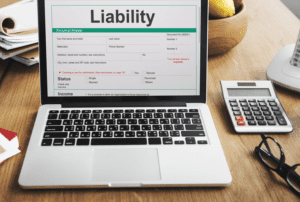
And thirdly, you can offer longer payment terms to customers and still receive payment. When a company sells its invoices to a factoring company, it typically receives 70% to 95% of the total invoice value—known as the advance rate. Then, the factoring company will collect payment from the customers. Once the unpaid invoices are collected, the factoring company pays the business the remaining balance minus the factoring fees. Factor fees, whether fixed or variable, typically range from 0.50% to 5% per month an invoice remains outstanding.
We Want Your Feedback!
Create a free account or connect your QuickBooks or OpenInvoice account, and provide information about your business. Insights on business strategy and culture, right to your inbox.Part of the business.com network. In addition to all this paperwork, banks take time to assess everything and make a decision. Access Xero features for 30 days, then decide which plan best suits your business. In fact, half of all small businesses fail within their first five years—many because they fail to manage the timing of income and expenses.
The Invoice Factoring Steps and Timeline
If you’re trying to decide if factoring is right for you, it’s also important to consider the pros and cons below. Upon approval, funds are deposited into your business bank account as soon as the next business day. Put your capital to work for growth projects, payroll, equipment, hires, and more. This simple definition doesn’t tell the whole story about factoring. To understand factoring and why many businesses use it, it’s helpful to understand what it is not. There are a lot of misconceptions about factoring that have given it a bad reputation.
Can Invoice Factoring Save You Money?
- However, fees on invoice factoring can be much higher than other forms of business financing.
- This is going to increase your monthly revenue significantly based on a per-unit wholesale price.
- The difference between the two determines who is responsible if the customer does not pay their invoice.
- Invoice factoring is just one way to get immediate cash for your small business.
The factor purchases the business’s accounts receivable, usually at a discounted price. The factor may pay between 70% and 95% of the total invoice amount, with the total cost depending on whether the parties agreed on advance or maturity factoring. Depending on the factor, the rate might accrue on a daily, weekly, or monthly basis. Your fee will be deducted from your factoring invoices definition reserve (the amount of the invoice that the factor holds back). Spot factoring’s primary advantage is that you have complete control over which invoices you sell to the factoring company. The more traditional form of factoring (also called high-volume factoring) usually requires that you enter into a contract where you agree to sell most or all of your invoices.
- Access Xero features for 30 days, then decide which plan best suits your business.
- Invoice factoring is a type of embedded financing in which your customers receive funds right away by selling you the right to collect payment on an invoice.
- We won’t get into detailed bookkeeping here—just know that, if you use recourse factoring and you’re a Bench client, we’ll take care of it for you.
- Additionally, factoring companies that specialize in, for example, the construction industry, often have an established network and connections within the industry.
- If you’re looking for a fast way to maintain working capital and your company issues invoices, invoice factoring may be a good option for your small business.
- It’s typically best for companies that generate invoices to other businesses and are in need of quick funding with flexible qualification requirements.
Pros and Cons of Invoice Factoring
- We’ll explain what you need to know if you’re considering it for your business.
- Business owners receive financing based on the value of their accounts receivable.
- With non-recourse factoring, you’re not liable for unpaid invoices.
- So if, for example, you are not able to pay the loan according to the terms of the loan agreement, the lender will have the right to claim the payment from your invoices.
- By selling a select number of unpaid invoices to a factor for less than what is due, a business can use invoice factoring to get the extra cash it needs.
It is a good option if you are only dealing with a single slow-paying invoice and you need immediate cash right away. Advance payments are usually done via direct deposit to the owner’s bank account. If you need the money sooner, you may ask your factoring company to send you the payment via wire transfer instead.
The money is then available to complete new orders, cover operating costs, and seize business expansion prospects. First of all, because it’s riskier, factors will charge you more for non-recourse. The difference could be as much as a percentage point—say 3% of the amount you’re factoring, vs. 2% if you used the recourse method. And if your clients have a low credit score, those invoices might not be eligible for non-recourse factoring, since they’re a higher risk. It is quite common practice for suppliers to offer a discounted rate to their clients in exchange for being paid earlier than the agreed deadline.
Choosing a factoring company

It indicates both a company’s ability to complete work and not have upcoming financial issues due to lack of work. There are many aspects that need to be considered when picking the best factoring company for your unique situation. However, we have listed a few of the common things to look for when doing a quick assessment. https://www.bookstime.com/ Another potential disadvantage is the change in the relationship with your customer. The factoring company will communicate directly with your customer, which can lead to an awkward discussion if not communicated beforehand. Interested in learning more about how invoice factoring could work for your company?
Who pays the factoring fee?
Because recourse factoring poses less risk to the factoring company, it’s typically the more common agreement. Further, non-recourse factoring fees are generally higher because it’s riskier for factoring companies. The business owner’s credit score doesn’t determine creditworthiness when factoring receivables, however.

Online Payment Portal
In invoice financing, it’s the business owner, not the customer, who repays the financing company. Business owners agree to a set repayment schedule, with service fees spread across payments. Meanwhile, customers continue to pay their invoices directly to the business owner as usual.

